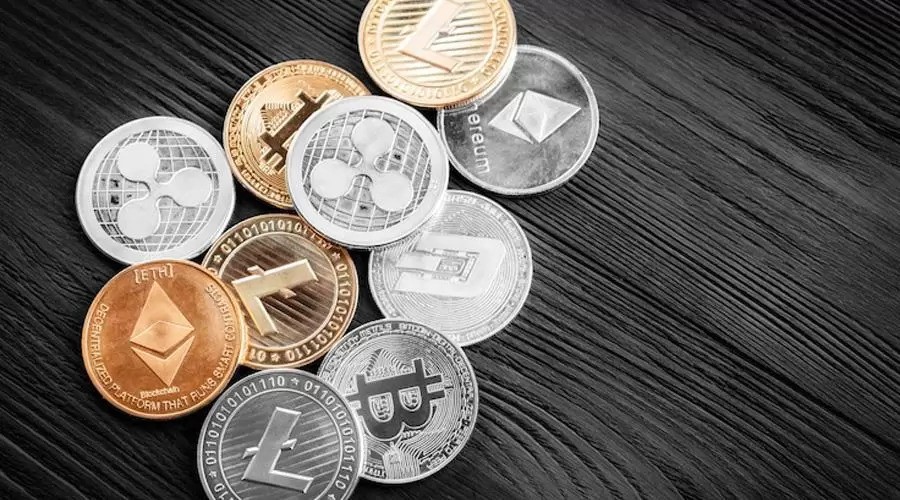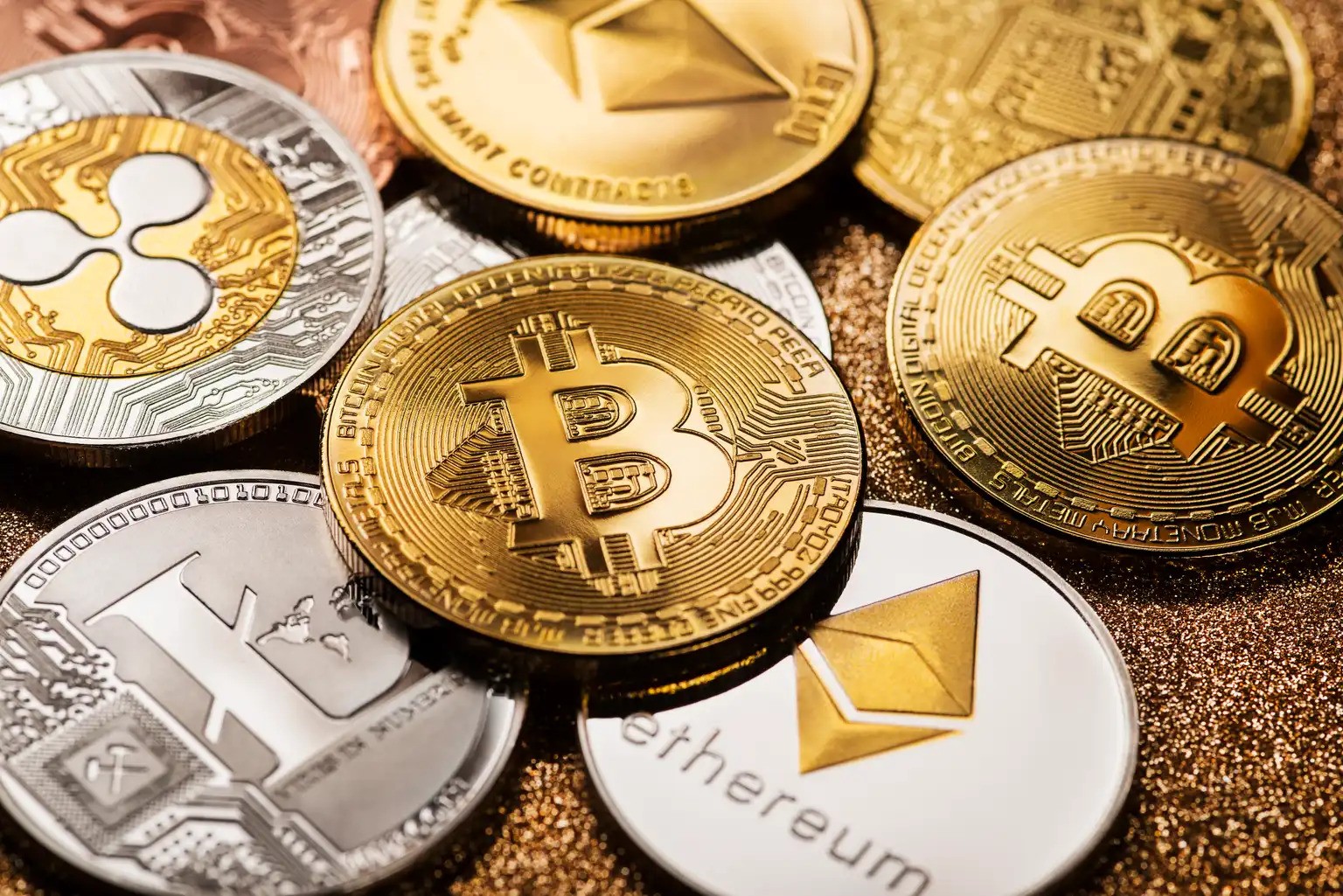Altcoin Legal Challenges - Navigating Regulatory Uncertainty
Investing in altcoins can be exciting, but it also comes with its fair share of legal hurdles. One of the most daunting challenges for altcoin enthusiasts is navigating the murky waters of altcoin legal challenges.
Author:Gordon DickersonReviewer:James PierceFeb 25, 20247.3K Shares121.7K Views

Investing in altcoins can be exciting, but it also comes with its fair share of legal hurdles. One of the most daunting challenges for altcoin enthusiasts is navigating the murky waters of altcoin legal challenges- regulatory uncertainty. With laws and regulations surrounding cryptocurrencies still evolving, investors often find themselves in uncharted territory, unsure of how to comply with legal requirements while maximizing their investment potential.
Regulatory Challenges In Altcoins
Regulatory challenges represent a significant hurdle for altcoins, as the legal landscape surrounding these digital assets continues to evolve. One of the primary issues stems from the lack of a unified regulatory framework governing altcoins globally.
Unlike traditional financial assets, altcoins operate in a decentralized and often anonymous environment, making them difficult to regulate effectively. This decentralized nature challenges traditional regulatory authorities' ability to monitor and enforce compliance with existing laws and regulations.
Furthermore, the classification of altcoins varies widely across jurisdictions, with some countries considering them as commodities while others view them as securities or currencies. This lack of consensus creates confusion and uncertainty for altcoin projects, investors, and regulatory bodies alike. It also leads to regulatory arbitrage, where altcoin projects may choose to operate in jurisdictions with more favorable regulatory environments, potentially exposing them to legal risks in other jurisdictions.
Another regulatory challenge for altcoins involves anti-money laundering (AML) and know-your-customer (KYC) requirements. Many altcoin projects aim to provide users with privacy and anonymity features, which can clash with AML/KYC regulations designed to prevent illicit activities such as money laundering and terrorist financing. As a result, altcoin projects must strike a balance between privacy-enhancing features and compliance with regulatory requirements, often facing criticism and scrutiny from regulatory authorities.
Moreover, the emergence of decentralized finance (DeFi) platforms built on blockchain technology introduces new regulatory challenges for altcoins. DeFi protocols enable users to access financial services such as lending, borrowing, and trading without intermediaries, raising questions about the applicability of existing regulations designed for traditional financial institutions.
Jurisdictional Variations In Altcoin Regulation
Jurisdictional variations in altcoin regulation present a complex and multifaceted challenge for both altcoin projects and regulatory authorities. The regulatory landscape for altcoins can vary significantly from one country to another, leading to inconsistencies and uncertainty in compliance requirements. These jurisdictional variations stem from differences in legal frameworks, regulatory interpretations, and cultural attitudes toward cryptocurrencies.
In some jurisdictions, altcoins are treated as commodities, subject to regulation by financial authorities responsible for overseeing commodity markets. This approach often involves registration requirements for altcoin exchanges and trading platforms, as well as compliance with anti-money laundering (AML) and know-your-customer (KYC) regulations.
Conversely, other countries classify altcoins as securities, subjecting them to stricter regulatory oversight by securities regulators. This classification may require altcoin projects to adhere to securities laws governing issuance, trading, and disclosure, which can significantly impact their operations and fundraising activities.
Additionally, certain jurisdictions recognize altcoins as currencies or payment instruments, subjecting them to regulation by central banks or monetary authorities. This regulatory approach may focus on consumer protection, financial stability, and the prevention of illicit activities such as money laundering and terrorist financing.
The lack of harmonization among regulatory regimes creates challenges for altcoin projects operating on a global scale. Compliance with multiple and sometimes conflicting regulatory requirements can be burdensome and costly, particularly for startups and small businesses. Moreover, the risk of regulatory arbitrage arises, as altcoin projects may choose to establish operations in jurisdictions with more favorable regulatory environments, potentially circumventing regulations in other jurisdictions.
Furthermore, the rapid pace of technological innovation in the altcoin space often outpaces regulatory developments, leading to regulatory lag and uncertainty. Regulatory authorities face the challenge of adapting existing laws and regulations to accommodate new altcoin technologies and business models while balancing innovation with investor protection and systemic stability.
To address jurisdictional variations in altcoin regulation, international cooperation and coordination among regulatory authorities are essential. Multilateral initiatives and regulatory dialogues can help establish common principles and standards for regulating altcoins while accommodating jurisdictional differences. Moreover, industry self-regulatory initiatives and best practices can complement regulatory efforts by promoting transparency, accountability, and responsible innovation within the altcoin ecosystem.
Compliance Issues For Altcoin Projects
Compliance is a critical aspect of any altcoin project, as it ensures that the project adheres to relevant laws, regulations, and industry standards. Failure to comply with these requirements can lead to legal repercussions, loss of investor trust, and even the shutdown of the project.
- Regulatory compliance -Altcoin projects must navigate a complex web of regulatory frameworks, which vary greatly from one jurisdiction to another. They need to ensure compliance with securities laws, anti-money laundering (AML) regulations, know-your-customer (KYC) requirements, and tax laws, among others. Failure to comply with these regulations can result in hefty fines or legal action from regulatory authorities.
- Token classification -Determining the legal classification of a token is crucial for compliance purposes. Tokens can be classified as securities, commodities, or utility tokens, each of which is subject to different regulatory requirements. Altcoin projects need to carefully analyze the characteristics of their tokens and seek legal advice to ensure proper classification.
- AML/KYC compliance -Altcoin projects are often required to implement robust AML/KYC procedures to prevent money laundering and terrorist financing activities. This may involve verifying the identity of users, monitoring transactions for suspicious activity, and reporting any suspicious transactions to regulatory authorities.
- Privacy concerns -Privacy-focused altcoin projects need to balance privacy with compliance. While privacy is an important feature for many users, it can also attract illicit activities. Altcoin projects must find ways to enhance privacy while still complying with AML regulations and other legal requirements.
- Securities regulations -Many altcoins are considered securities under applicable laws, especially if they are sold through initial coin offerings (ICOs) or token sales. Altcoin projects must comply with securities regulations, such as registering with regulatory authorities or qualifying for exemptions from registration.
- Tax compliance -Altcoin transactions may have tax implications for users, investors, and the project itself. Altcoin projects need to understand the tax treatment of their tokens in different jurisdictions and provide users with the necessary information to comply with their tax obligations.
- Consumer protection -Altcoin projects must also consider consumer protection laws, which aim to protect users from fraud, deceptive practices, and unfair treatment. This may involve providing clear and accurate information about the project, disclosing risks to investors, and implementing measures to safeguard user funds.
Legal Risks In Altcoin Investments
Investing in altcoins can offer significant profit opportunities, but it also comes with various legal risks that investors should be aware of. Here are some of the key legal risks associated with altcoin investments:
- Regulatory uncertainty -Altcoins operate in a regulatory gray area, with laws and regulations governing cryptocurrencies still evolving. Regulatory bodies around the world are grappling with how to classify and regulate altcoins, which can lead to uncertainty for investors. Changes in regulations could impact the legality of altcoin investments and the value of altcoins themselves.
- Securities law compliance -Many altcoins are considered securities under existing laws, especially those sold through initial coin offerings (ICOs) or token sales. Investing in altcoins that are classified as securities may subject investors to securities laws and regulations, such as registration requirements, disclosure obligations, and restrictions on trading.
- Fraud and scams -The altcoin market is rife with fraud and scams, including Ponzi schemes, pump and dump schemes, and fake ICOs. Investors should be wary of altcoin projects that promise high returns with little risk or fail to provide adequate information about their team, technology, and business model. Due diligence is crucial to avoid falling victim to fraudulent altcoin investments.
- Market manipulation -Altcoin markets are susceptible to manipulation, including price manipulation, insider trading, and market manipulation schemes. Investors should be cautious of pump-and-dump groups, social media influencers promoting altcoins for personal gain, and coordinated efforts to manipulate altcoin prices.
- Security risks -Altcoin investments are also vulnerable to security risks, such as hacking, theft, and fraud. Investors should take precautions to secure their altcoin holdings, such as using hardware wallets, employing strong passwords and two-factor authentication, and avoiding storing large amounts of altcoins on exchanges.
- Tax implications -Altcoin investments may have tax implications for investors, depending on the jurisdiction and the nature of the investment. Investors should consult with tax professionals to understand their tax obligations related to altcoin investments, including capital gains tax, income tax, and reporting requirements.
- Lack of legal recourse -Unlike traditional investments, altcoin investments may lack legal recourse in the event of disputes or losses. Altcoin projects may be decentralized, making it difficult to hold individuals or entities accountable for wrongdoing. Investors should be aware of the limited legal protections available in the altcoin market and take appropriate precautions to mitigate risks.
Altcoin Legal Challenges - FAQ
Why Are Altcoins Risky?
Altcoins have smaller market capitalizations and lower trading volumes. As a result, they are prone to sharp spikes in volatility.
What Are The Top Three Altcoins?
While Bitcoin, Tron, and Immutable currently lead as the most profitable chains, the market is dynamic, and these figures may change.
Is USDT An Altcoin?
USDT is one of the most widely adopted stablecoins, which are blockchain-based currencies that are tied - or tethered - to fiat currencies. The goal of Tether is to provide a more secure digital asset that isn't as susceptible to market volatility as Bitcoin is.
Final Thoughts
Altcoin legal challenges are a significant concern for investors in the cryptocurrency space. As regulations continue to evolve, altcoin projects and investors alike need to stay informed and proactive in addressing legal compliance issues. By understanding the regulatory landscape and seeking guidance from legal experts, investors can navigate these challenges with confidence and ensure a smoother journey in the world of altcoin investments.

Gordon Dickerson
Author
Gordon Dickerson, a visionary in Crypto, NFT, and Web3, brings over 10 years of expertise in blockchain technology.
With a Bachelor's in Computer Science from MIT and a Master's from Stanford, Gordon's strategic leadership has been instrumental in shaping global blockchain adoption. His commitment to inclusivity fosters a diverse ecosystem.
In his spare time, Gordon enjoys gourmet cooking, cycling, stargazing as an amateur astronomer, and exploring non-fiction literature.
His blend of expertise, credibility, and genuine passion for innovation makes him a trusted authority in decentralized technologies, driving impactful change with a personal touch.

James Pierce
Reviewer
James Pierce, a Finance and Crypto expert, brings over 15 years of experience to his writing. With a Master's degree in Finance from Harvard University, James's insightful articles and research papers have earned him recognition in the industry.
His expertise spans financial markets and digital currencies, making him a trusted source for analysis and commentary. James seamlessly integrates his passion for travel into his work, providing readers with a unique perspective on global finance and the digital economy.
Outside of writing, James enjoys photography, hiking, and exploring local cuisines during his travels.
Latest Articles
Popular Articles

